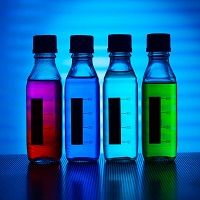Natural Food Additive Can Prevent Skin Cancer
A compound called bixin, found in the natural food additive annatto, can be used to help prevent skin cancer.

A compound called bixin, found in the natural food additive annatto, can be used to help prevent skin cancer.
Annatto is commonly found in the seeds of the achiote fruit primarily used in Latin America as a cooking ingredient.
Bixin was found to work by preventing skin cells from forming and preventing ultraviolet radiation (UV)-triggered skin damage.
Prior studies had indicated that a gene expression — transcription factor called NRF2 – embodied protective mechanisms against sunlight. Georg Wondrak, PhD, the study’s lead author, wanted to explore if bixin was that compound that could activate the NRF2 network.
Wondrak conducted a study published in the journal Free Radical Biology and Medicine involving two groups of mice exposed to UV radiation — the first group was injected with bixin while the second group was left alone.
The study results showed that compared to the control group, those administered bixin injections yielded significantly less skin damage from the sun.
Experts highlighted that while bixin does not completely kill cancer cells, it does prevent the cancer from developing. The compound also makes the cells create protective antioxidants and repair factors.
The next step, Wondrak and Zhang, acknowledged, is to assess whether bixin can cause the same favorable results on humans.
As the FDA had dubbed annatto a safe food additive, the researchers anticipate more studies on the horizon to determine whether combining annatto with other food items could also protect the skin from sun damage, skin aging, and skin cancer.